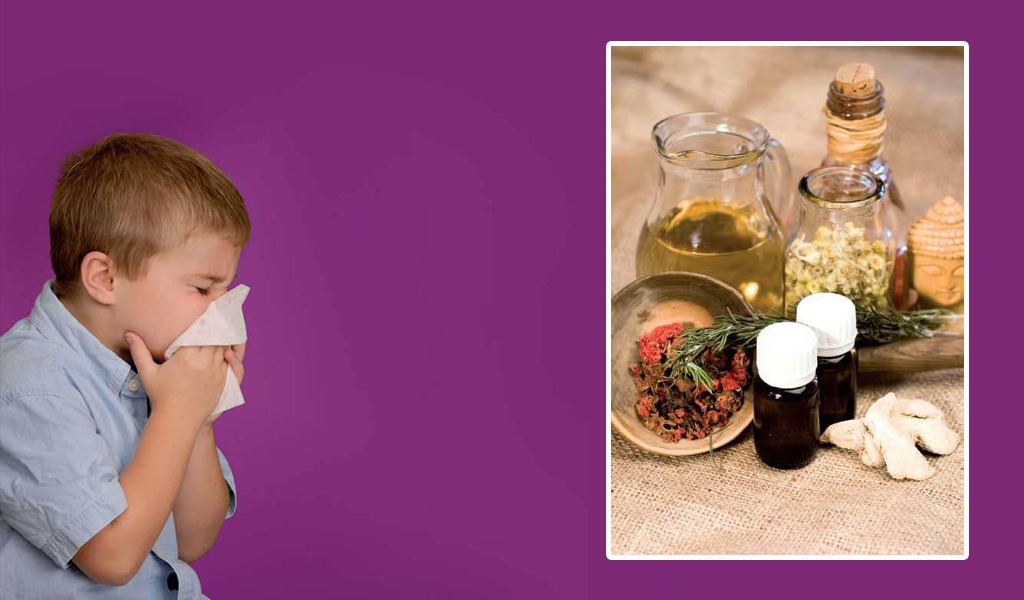The word ‘allergy’ means an altered or abnormal tissue reaction after exposure to an antigen (also called an allergen). It is an abnormal reaction by a person’s immune system against a normally harmless substance. This occurs through a process called sensitization, where a person’s immune system is exposed to enough of the allergen to make the body produce allergic antibodies to that substance. Allergic reactions are caused by a wide range of substances and conditions. These include pollens, dust, cosmetics and animal hair; poisonous plants, serums, vaccines and drugs; physical agents such as heat, cold and sunlight, as well as a variety of foods.
Common Symptoms of Allergies
Allergic symptoms may manifest in various forms such as recurring headaches, migraines, dizziness, irritability, nervousness, depression, neuralgia, conjunctivitis, eczema, hay fever, a stuffy or runny nose, diarrhea, vomiting, urticaria, asthma, shortness of breath and swelling of the face and eyes. The same substance can cause different symptoms in different people at different times.
Types of Allergies
- Nasal Allergies/Hay Fever
- Skin Allergies
- Food Allergies
- Drug and Medicine Allergies
- Insect Allergies
Home Remedies
The most important and potent remedy is precaution. Perhaps the best advice is the simplest: avoid the foods, plants, animals, drugs, dust, or other substances that trigger an allergic reaction.
Lime:
Lime is loaded with vitamin C which is known to raise the immunity, and build up the body’s self defense mechanism. It is considered an effective remedy for any kind of allergy. Half a lime may be squeezed in a glass of lukewarm water and sweetened with a teaspoon of honey. It can be taken once daily, first thing in the morning, for several months. This remedy not only flushes the system of toxins, but also acts as an antitoxic and anti-allergic agent.
Vegetable/Fruit Juices:
A quantity of 500 ml of carrot juice or a combination of carrot juice with beet and cucumber juices has been found beneficial in the treatment of allergies. In the case of mixed juices, 100 ml each of beet and cucumber juices should be mixed with 300 ml of carrot juice to prepare the 500 ml or half a liter of mixed juice. This should be taken once daily. Regularly practice juice fasting. This will cleanse your system of toxins and residues.
Nutrients/Supplements:
Certain nutrients have been found beneficial in the prevention and treatment of allergies. Often, vitamin B5 intake brings great relief. A dose of 400 mg of vitamin E taken daily for four to six weeks is also beneficial, as this vitamin possesses effective anti-allergic properties. Make sure that you give a break of couple of days after every 10 days, so that the body develops its own immunity and there is no complete dependence on the supplements. Allow the supplements to act as a catalyst and be aware of not making the system habitual to it.
Castor Oil:
Take five drops of castor oil in half a cup of any fruit or vegetable juice, or plain water, on an empty stomach in the morning. This is beneficial for allergies of the intestinal tract, skin and nasal passages.
Meditation, Exercise and Mind Control:
For allergic conditions in which an element of mental stress is present as well, it is essential to employ such methods as relaxation, exercise, meditation, and mind control. These methods reduce the levels of cortisone and lactate, the stress inducing chemicals which lower the immune system. Yogasanas like mudras, Ardh Matsyendrasana, Sarvangasana, Shavasana and Anulom Vilom pranayama are beneficial in the treatment of an allergy. The most important breathing to boost immunity is Kapalbhatti kriya to detoxify the body, and raise its resistance against allergens.
General Tips
If the allergen is airborne, clean living and working spaces frequently, wear a face mask when doing chores, get rid of dust, molds and mildew, discard old rugs, pillows and stuffed animals, which provide breeding grounds for molds and dust mites. Air conditioners can decrease your exposure to pollen, a dehumidifier and an air purifier cleaned frequently, may help.
Avoid white sugar, and everything made with it. The process of chemically whitening sugar is toxic. As a substitute use unpasteurized honey, maple syrup, agave nectar or unbleached turbinaro sugar. Sweetening can also be achieved with concentrated natural fruit juice. Avoid bleached flours, all processed foods, including the frozen pre-packaged types. Be especially vigilant in your selection of meat products, and avoid the processed varieties, as many commercially grown animals are exposed to high levels of pesticides, antibiotics, steroids and questionable dietary sources.
Eat whole foods, and prepare your meals at home using fresh, natural products.
 Indu Arora, Ayurveda and Yoga Therapist considers herself a student for lifetime. She has been sharing about Yoga philosophy, Yoga Therapy and Ayurveda since 1999. She is inspired by and taught under Kriya Yoga, Himalayan Yoga, Kashmir Shivaism and Sivananda Yoga lineages. She has studied both Yoga and Ayurveda in a traditional Guru paramapara setting. Her teaching style is rooted in empowering and inspiring students to awaken the inner Guru. Her core philosophy is, ‘Nothing has the greatest power to heal, but Self!” www.yogsadhna.com
Indu Arora, Ayurveda and Yoga Therapist considers herself a student for lifetime. She has been sharing about Yoga philosophy, Yoga Therapy and Ayurveda since 1999. She is inspired by and taught under Kriya Yoga, Himalayan Yoga, Kashmir Shivaism and Sivananda Yoga lineages. She has studied both Yoga and Ayurveda in a traditional Guru paramapara setting. Her teaching style is rooted in empowering and inspiring students to awaken the inner Guru. Her core philosophy is, ‘Nothing has the greatest power to heal, but Self!” www.yogsadhna.com




